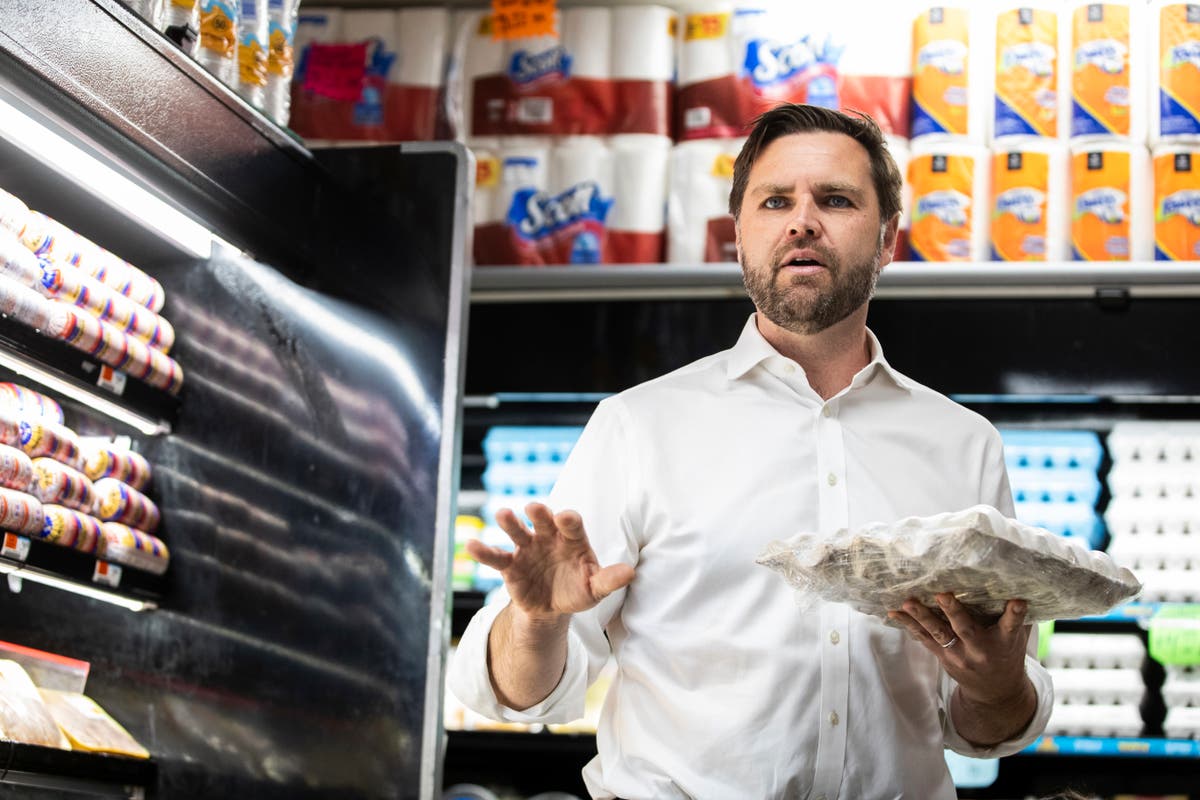JD Vance was roundly mocked online over a trip to the supermarket where he bemoaned the steep price of eggs — and botched the photo opp.
The Republican vice presidential nominee stopped by a supermarket in Reading, Pennsylvania, with his sons over the weekend to illustrate how grocery prices have been impacted by “Kamala Harris’s policies” when he claimed a dozen eggs cost $4.
The problem? When footage of the visit emerged, Vance was quickly called out by viewers who spotted the price tag of a dozen eggs behind him was actually $2.99.
🗳️ Register to vote: https://vote.gov/



There’s been a couple studies. This NYT article summarizes some of them. https://www.nytimes.com/2024/08/15/business/economy/kamala-harris-inflation-price-gouging.html
The article says that the cause is complex. Corporate profits are part of it, but also increased wages across the supply chain, and strong demand (more people eating at home instead of eating out) vs lower supply (egg shortages, for example). I saw another article suggesting that climate change was also harshly impacting the supply chain, but it didn’t list a solid source.
I’ve never understood the “more people eating at home” argument for hight food prices. The same amount of food is being bought even if a restaurant is buying less. Like food magically doesn’t get eaten or needed more based on people eating at home or eating out. The food would just be going to the grocer instead the restaurant directly. Or am I misunderstanding this?
IIRC, one of the lessons from the pandemic is that restaurant and grocery store food chains are separate things. It isn’t easy to switch between them.
Logistics is boring, but really important.
That makes some sense but it sounds like a problem for the companies to solve logistically and not just burden on the household buyer as a bandage.